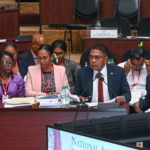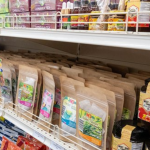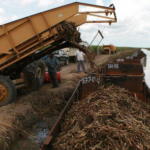The fishing industry is a significant economic earner for the country. It values approximately $8.3Billion of the Gross Domestic Product (GDP) and employs over 15,000 persons, directly and indirectly, boosting rural development. It is an important contributor to Guyana’s export earnings. In 2018, the value of the sector’s output was over $16Billion and contributed $15Billion (US$71.6M).
Additionally, it contributes to food nutrition and security, since a significant percentage of our protein intake comes from fish and fish products.
To move the industry forward, the Ministry of Agriculture’s Fisheries Department held its annual Fisherfolk Day 2019 in Region 3 at the Uitvlugt Community Centre on July 4 under the theme, ‘Promoting sustainable livelihoods through the development of a climate-resilient fisheries sector’.
![Minster of Agriculture, Noel Holder [third left] along with senior officials from the Ministry of Agriculture](https://agriculture.gov.gy/wp-content/uploads/2019/07/Minster-of-Agriculture-Noel-Holder-third-left-along-with-senior-officials-from-the-Ministry-of-Agriculture.jpg)
Minster of Agriculture, Noel Holder [third left] along with senior officials from the Ministry of Agriculture
“To reduce the pressure on the marine resources, we have been diversifying in developing our aquaculture industry, and soon greater focus will be placed on improvement in hatchery techniques and feed development for competitive Tamaqua, Hassar and Whiteleg Shrimp. The latter two are in high demands and is part of our diversification to more lucrative species,” Minister Holder noted.
To improve food security and socio-economic development in hinterland regions, the minister noted that the agri-ministry will be conducting feasibility studies on utilising local species for aqua farming, and to improve management of the inland fisheries they plan to conduct inland stock assessments of commercial species.
Before the fishermen and women participated in an interactive session with each other, they were also addressed by Fisheries Department Manager, Denzil Roberts who noted that there must be an increase in competitiveness and exports, disease control and prevention and the development of a sports fishing regulation.
“We will focus on capacity development on the aquaculture value chain, inclusive of marketing, value-added production, production development and post-harvest handling so that fishing can maintain profitability and ensure the maintenance of the produce. There must be disease control and prevention to avoid major financial loses and endangerment of indigenous species. We also have to develop a sports fishing regulation and management plan in order to protect endangered species from being overfished,” Roberts remarked.
After the formal opening ceremony, fishermen and women were given the opportunity to network in a more social environment.
(DPI)






